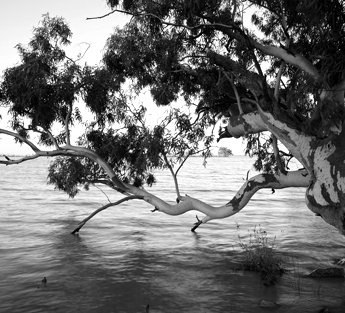MDBA says info flows freely
 The Murray Darling Basin Authority (MDBA) has been accused of strategically selecting the information it provides to politicians.
The Murray Darling Basin Authority (MDBA) has been accused of strategically selecting the information it provides to politicians.
The Southern Riverina Irrigators (SRI) group is calling for an independent investigation into the Authority.
“We believe the MDBA is marking their own homework,” SRI Chairman John Bradford told ABC reporters.
“They're filtering information that gets to the politicians and when they come out here and have a look at what's going on, we think that message is not getting back to Canberra.”
But MDBA Chief Executive Rhondda Dickson denies the organisation's independence has been compromised.
She says recent work with landholders in the Edward-Wakool river systems shows the MDBA is transparent in its consultations.
“All our work is exposed to the public, to science,” she said.
“If it's science work, we have that peer reviewed.
“Our social and economic work we're doing in monitoring the impacts of the Basin Plan, on social and economic factors, we work very closely with communities to ensure that what we are going to be reporting reflects accurately what they say.”
The criticisms come amid a review of the Water Act, which has so far seen 23 recommendations made but final responses and investigations have not yet been released.
The SRI wants the Water Act amended to give equal weight to social, economical and environmental factors.
“There is nothing in the Water Act that prevents the Basin Plan by being truly a social, economic and environmental outcome,” Ms Dickson said.
“The fact that government's spending, I think about $2.5m a day almost into regional communities to support the modernisation and to address any impacts of the plan, I think is how confident governments are and they see these reforms.”
Some stakeholders are pushing for the Murray Darling Basin Authority to be able to trade environmental water.
SRI’s John Bradford has backed his call.
“We want them to trade water, have the ability to trade environmental water, in years when it's not required,” he said.
“You have your drying phase and wetting phase in the environment.
“In the drying phase we want that environmental water to go back into production.”








 Print
Print